Agricultural films play a crucial role in modern agriculture, providing a controlled growing environment for crops, helping to improve yields, and reducing waste. However, the harsh outdoor conditions that agricultural films are exposed to can cause the degradation of the plastic material over time. This is where polymer additives for agricultural films come in. By adding specific additives to the film, it can be more durable and effective.
Related:
- What are plastic additives? 8 most common plastic additives in plastic industry
- BIO filler masterbatch – effective solution for mulching film production
- Top 3 additives for plastic recycling you should know
- Anti-fog masterbatch - Fundamental knowledge for using
- Polymer additives for plastic outdoor furniture
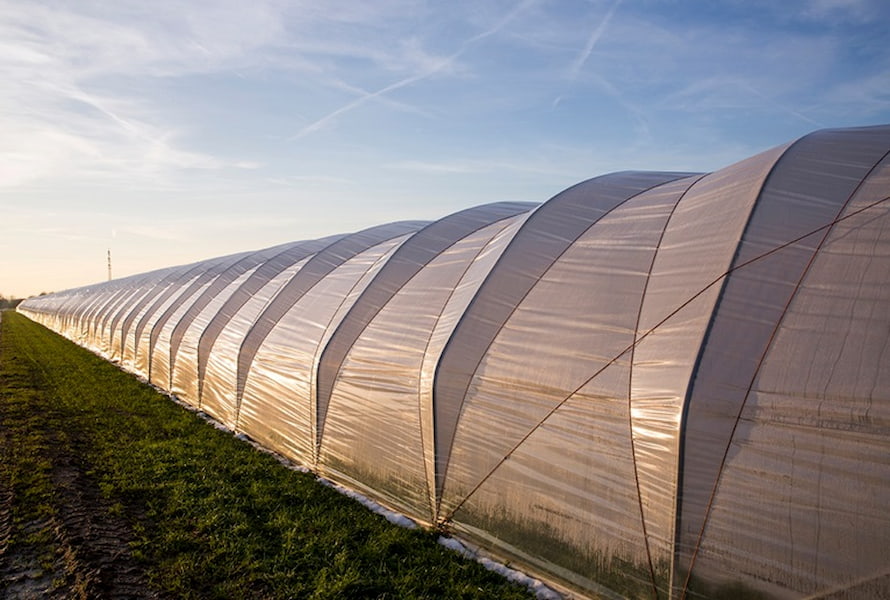
From UV stabilizers to biodegradable fillers, we will provide a comprehensive overview of polymer additives for agricultural films and their role in sustainable agriculture practices. Whether you are a farmer looking to improve your crop yields or agricultural film manufacturers, this guide has everything you need to know about polymer additives for agricultural films.
1. What is agricultural film?
1.1. Agricultural film definition
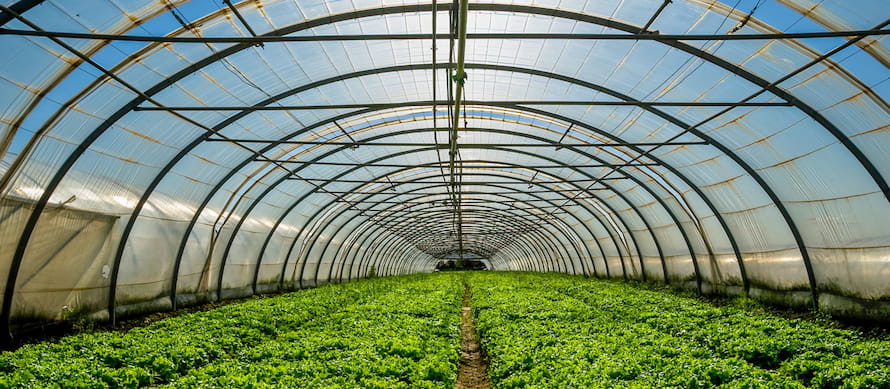
Agricultural film is a versatile and widely used material in the agricultural sector. It is a type of plastic film typically made from polyethylene (PE) that is flexible, durable, and resistant to environmental factors. The film can be manufactured in different thicknesses and formulations, tailored to meet the unique needs of different crops and growing conditions.
There are 3 types of agricultural film: crop protection, soil conservation, and irrigation management. While crop protection films create greenhouses or tunnels to protect crops from harsh weather conditions, pests, and diseases, soil conservation films cover the soil to reduce evaporation, retain moisture, and improve soil health. The last type - irrigation management films - can be used to collect or store water for later use.
1.2. Benefits of using agricultural films
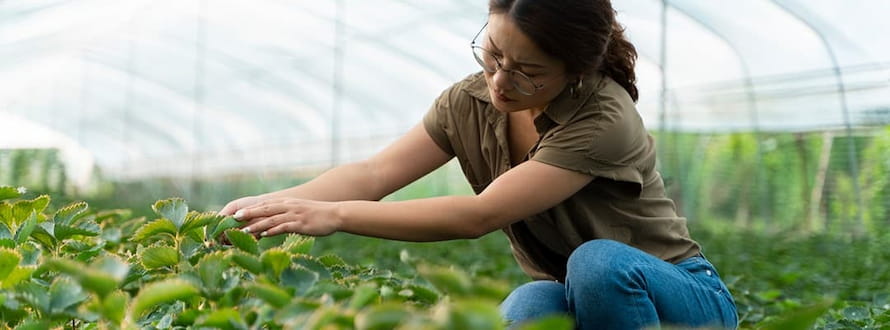
Agricultural films are a critical component in modern agriculture, offering a range of benefits that can improve crop yields, reduce waste, and increase efficiency. Here are some of the key benefits of agricultural films in more detail:
- Modification of Soil Temperature
Agricultural films play a vital part in the right alteration of the temperature of the soil so that it is ideally acceptable for the effective development of plants. This results in the soil temperature being optimally suitable for the growth of plants.
- Protect Against the Loss of Moisture
A reduction in the amount of moisture present in the soil might inhibit the healthy development of plants. The reason for this is that a lack of moisture can cause the soil to dry up, which is detrimental to plant growth and should be avoided at all costs. Through a reduction in the amount of moisture that is lost to evaporation, the application of agricultural film plays a vital part in the prevention of the loss of moisture from the soil.
- Conservation of Water/Water Retention
The agricultural film is very beneficial in lowering the pace of water movement in the soil, which in turn helps to preserve water. These films contribute to a consistent level of humidity in the soil, which is important for the growth of plants and helps to ensure that the soil will not dry up.
- Minimize the Weed Spreading
The application of agricultural films to soil assists in suppressing the growth of weeds in that environment. The acceleration of plant development, which is to the farmers' great advantage, is made possible by controlling the spread of weeds in the soil and therefore reducing their number. As a result, it is extremely easy to see how agricultural films have a beneficial influence, not only on the soil but also on the healthy development of plants.
When conducting business in the agricultural sector, the employment of agricultural films allows for the storage of components such as methyl bromide in the soil. These help in maintaining the soil free of weeds and stable, with the end objective being that the product will profit both the ranchers and the customers equally. When coupled with water-conservation tactics that make use of trickle irrigation systems and agricultural films, this approach works extremely well.
The use of agricultural films in the field of horticulture has made it possible to monitor manor plans at present. This is made possible by the fact that one may pre-plan the ranch dates. This is due to the method by which manufacturers of plastic and even biodegradable agricultural film generate mulch, which has the potential to radically alter the temperature of the ground below it. This can without much of a stretch stimulate speedier development for the harvests, resulting in higher levels of output at lower costs and with lower use of resources like water.
- Increased Suitability of the Crops
When mulch is put to a homestead, the quality of the harvests that are brought in will unquestionably be of a level that cannot be surpassed by anything else. The application of this agricultural muck in agricultural enterprises makes it possible to achieve higher yields and output while also bringing about a discernible improvement in the general quality of the soil. This also occurs when green items that have been cooked for too long do not fall to the ground and make touch with the soil. Because of this, there will be no mixing of the dirt, which will prevent it from becoming more oxidized.
- Decrease in the Utilization of Fertilizer
The use of agricultural films eliminates the necessity of using manures to weed the executives and root the board, which results in a significant improvement in both processes. This ensures that the product has not been tampered with in any significant way and is completely fresh. Because one can easily inject the compost into the base of the crop rather than continuously sprinkling it on, the amount of compost that is used is also minimized in a good way. This contributes to the beneficial effect.
Agricultural films can help to reduce waste by conserving water, reducing the need for pesticides, and improving crop quality. By improving the growing environment and reducing the need for manual labor and pesticides, agricultural films can help to reduce waste and promote sustainability.
Agricultural films are a valuable tool for farmers, offering a range of benefits that can help to improve crop yields, reduce waste, and increase efficiency. When used responsibly, agricultural films can play a crucial role in sustainable agriculture, helping farmers to meet the growing demands of the food industry while protecting the environment. However, it is essential to use agricultural films responsibly, as they can also have environmental impacts if not disposed of properly.
2. Top 5 polymer additives for agricultural films
The use of polymer additives in agricultural plastic films offers many advantages for resolving issues related to the greenhouse's durability and operational effectiveness. By melting, uniformly spreading, and then concentrating high-performance polymer additives, a process known as masterbatch can be used to produce significant gains. Enhanced crop production, optimal water utilization, increased pesticide efficiency, and several other benefits are all promoted by polymer additives, which contribute to regulated agricultural settings and promote their use.
Below are the 5 most common kinds of polymer additives for agricultural films you should know:
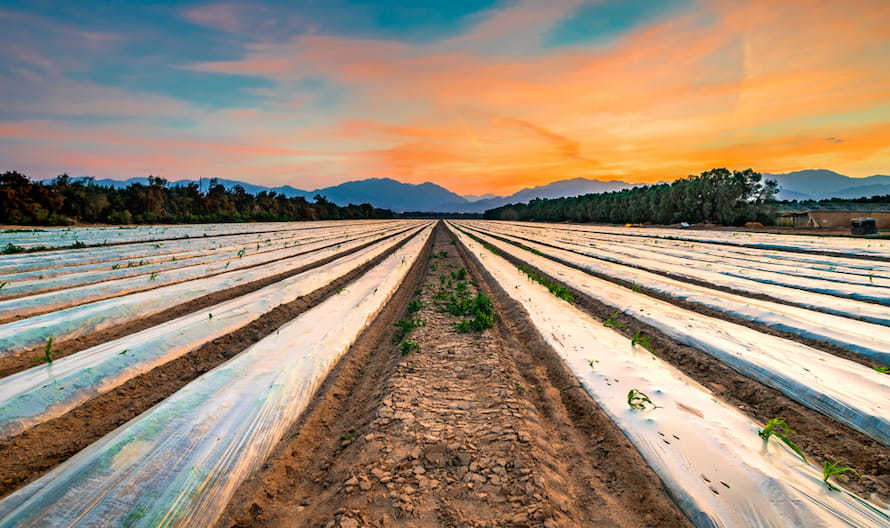
UV light stabilizers are important additives used in the production of agricultural films to improve their durability and resistance to UV light. Agricultural films are exposed to harsh outdoor conditions and UV light can cause degradation of the plastic material over time, reducing its strength, clarity, and overall performance.
UV light stabilizers are designed to absorb and block UV radiation, preventing degradation of the film and preserving its integrity for a longer period. This can help to extend the lifespan of the film, reduce the need for replacement, and improve overall crop protection and soil conservation.
UV light stabilizers can be also added in different forms, including liquids, pastes, and powders, depending on the manufacturing process and specific requirements of the film. In addition to improving the performance of the film, the use of UV light stabilizers can also help to reduce environmental waste by reducing the need for frequent film replacement.
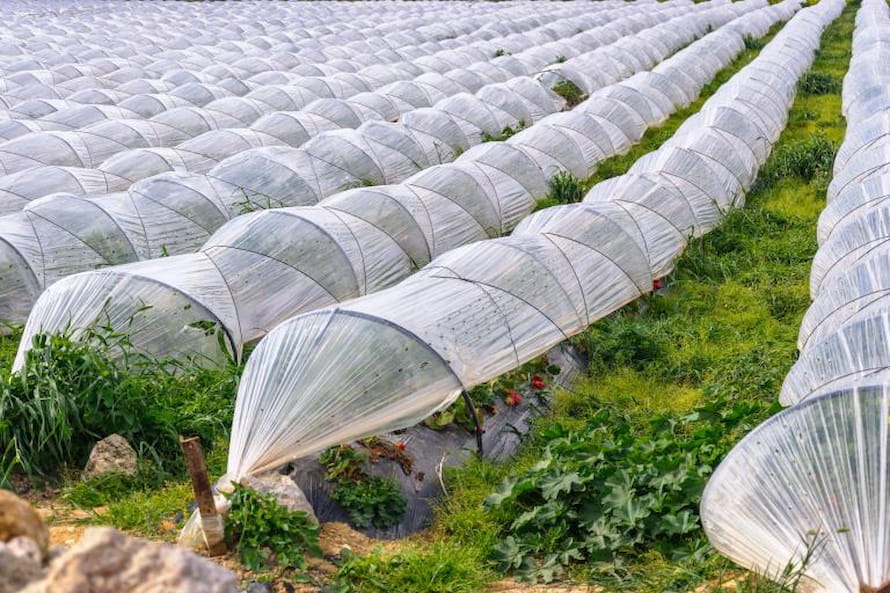
Anti-fog additives are important components in the production of agricultural films, as they help to prevent condensation from forming on the film's surface. In high-humidity environments, condensation can form on the film and reduce visibility, making it difficult for farmers to monitor their crops. Anti-fog additives are added to the film during the manufacturing process and work by reducing the surface tension of the film, preventing condensation from forming. This can help to improve visibility, allowing farmers to monitor their crops more effectively and make informed decisions about crop management.
This kind of polymer additive can also help to improve the overall performance of the film by preventing moisture from penetrating the film and reducing the risk of mold and mildew growth. By improving visibility and reducing moisture, anti-fog additives can help to increase the efficiency and sustainability of agricultural practices.
Biodegradable fillers are an additive added to traditional plastics to enhance the biodegradability of the film. Biodegradable fillers are made from natural materials like straw, leaves, and sawdust that break down over time, reducing waste and minimizing their impact on the environment. Biodegradable fillers offer several benefits for farmers, including helping the agricultural film to decompose, so after the crop is over, the agricultural film can biodegrade and mix into the soil, acting as a fertilizer. This makes biodegradable fillers environmentally friendly and beneficial to the soil.
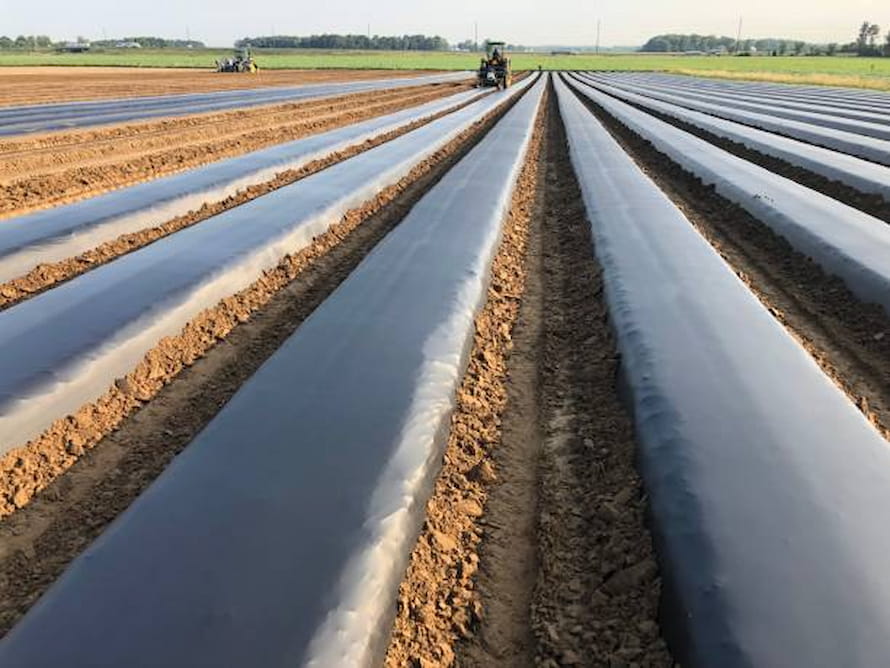
Black carbon additives are substances that are added to agricultural films to improve their thermal performance and UV resistance. Agricultural films are often exposed to harsh outdoor conditions, and UV radiation and high temperatures can cause degradation of the plastic material over time. Black carbon additives are designed to absorb UV radiation and reduce heat absorption, improving the performance of the film and increasing its lifespan. The black color of the carbon particles also provides a dark, opaque surface that helps to suppress weed growth and reduces the need for manual labor and herbicides.
Black carbon additives offer a practical solution for farmers looking to improve the performance and durability of their agricultural films. By absorbing UV radiation and reducing heat absorption, black carbon additives can help to increase crop yields, improve soil conservation, and reduce waste, making them a valuable addition to sustainable agriculture practices. The use of black carbon additives can also help to reduce the need for frequent film replacement, saving time and reducing waste.
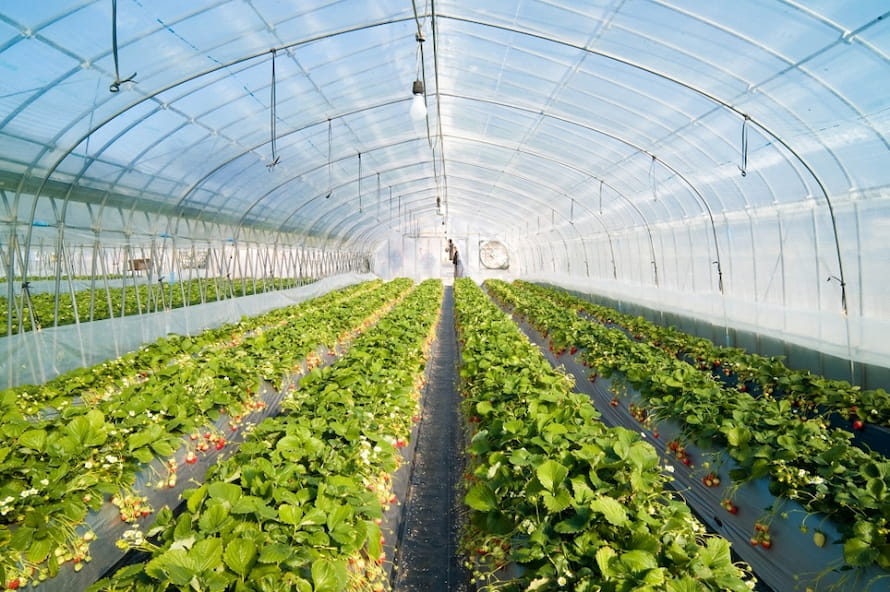
Filler masterbatch additives are compounds added to greenhouse films to improve their physical properties and performance. Greenhouse films are used in agriculture to provide a controlled growing environment for crops, and the addition of filler masterbatch additives can help to improve their durability and functionality.
The most common type of filler masterbatch additive is calcium carbonate, which is added to the film to increase its rigidity and tensile strength. Calcium carbonate also helps to reduce the film's transparency, reducing light transmission and improving heat retention, creating a more optimal growing environment for crops. The addition of filler masterbatch additives can also help to reduce the overall cost of the film, as the increased rigidity reduces the need for thicker films.
This kind of polymer additive is a valuable addition to greenhouse films, offering several benefits that can improve crop yields and reduce waste. By increasing the film's rigidity, reducing its transparency, and improving its overall performance, filler masterbatch additives can help farmers to create a controlled growing environment that promotes healthy plant growth and increases sustainability.
3. The Future of Polymer Additives in the Agricultural Industry
The agriculture sector is continuously making strides toward growth, and polymer additives continue to play an important part in this. Though polymer additives currently make plastic more durable, farmers seek even longer service lifetimes for the components of their greenhouses.
The industry-leading additives from European Plastic Joint Stock Company (EuP) that are used in agricultural films provide outstanding protection and longevity, which further extends both the service life and the durability of the films. They contribute to lower labor costs and a reduction in the amount of plastic waste, which ultimately results in improved economics for plastics and a more sustainable future.
If you are looking for high-quality polymer additives for agricultural films, do not hesitate to contact us for the earliest advice and support.